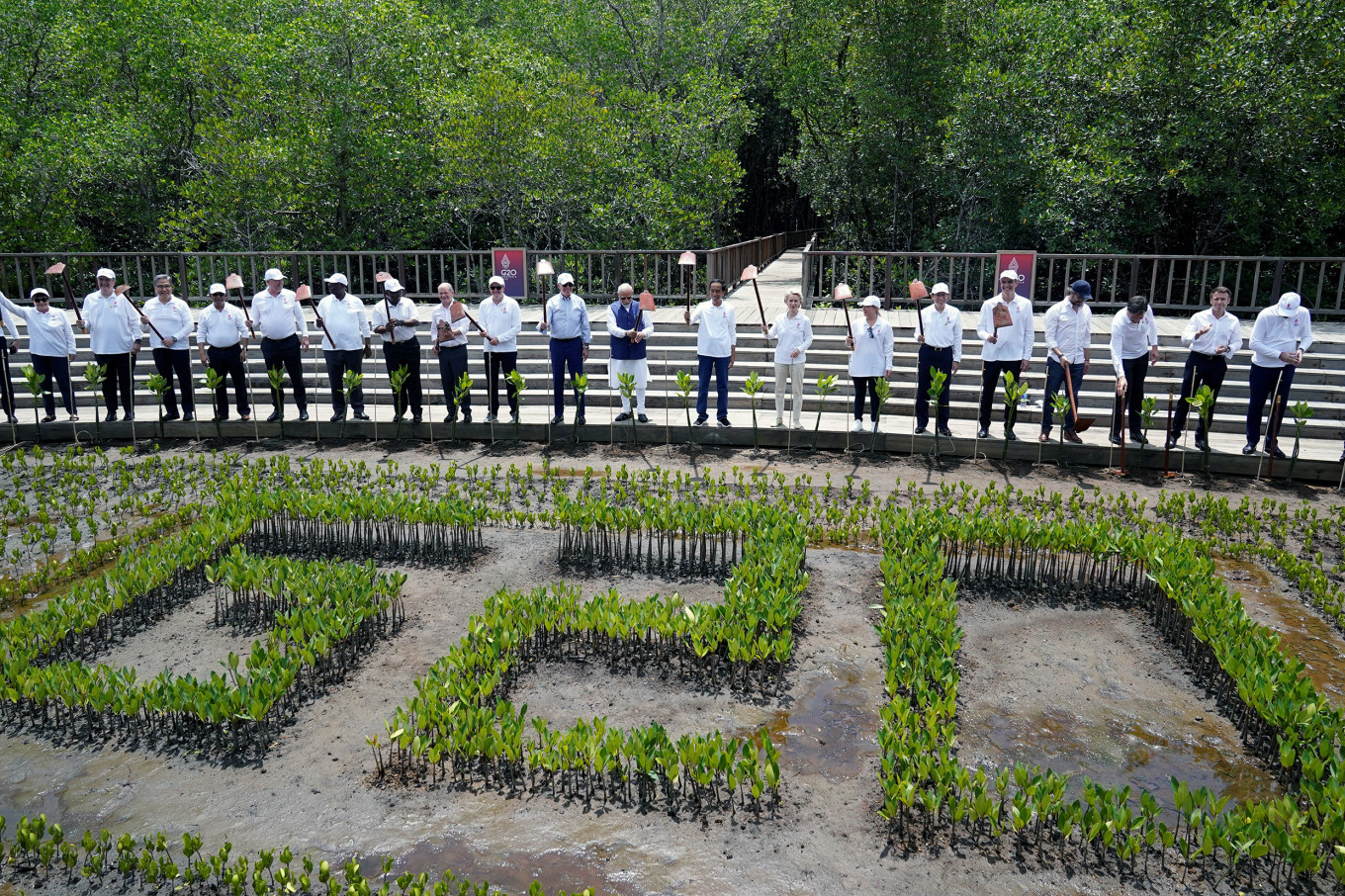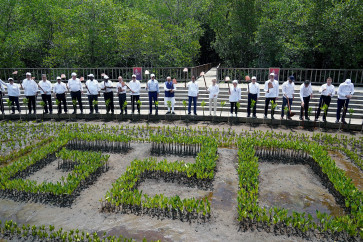Popular Reads
Top Results
Can't find what you're looking for?
View all search resultsPopular Reads
Top Results
Can't find what you're looking for?
View all search resultsFrom risk to opportunity: Banks' journey toward climate resilience and sustainability
Banks can develop environmentally friendly banking products, such as financing renewable energy projects or green bonds, while promoting investment portfolios based on environmental, social and governance criteria.
Change text size
Gift Premium Articles
to Anyone
T
he urgency of addressing climate change has become undeniable, as the effects of climate change are increasingly evident. Extreme weather events and rising sea levels pose significant risks, threatening ecosystems worldwide. As the world grapples with the growing threat, countries are expected to take necessary steps to address the challenge.
Indonesia submitted its Intended Nationally Determined Contribution (INDC) to the United Nations Framework Convention on Climate Change (UNFCCC) Secretariat prior to COP21 or the Paris Agreement. In line with the "Enhanced Nationally Determined Contribution Republic of Indonesia," the country has decided to strengthen its INDC by enhancing clarity, transparency and understanding for both national and international interests. Consequently, the Enhanced NDC was submitted to the UNFCCC Secretariat by Sept. 23, 2022 with increased emission reduction targets. The targets have risen from 29 percent in the First NDC and Updated NDC to 31.89 percent unconditionally, and from 41 percent in the Updated NDC to 43.20 percent conditionally.
Observing and supporting this strong commitment is crucial for its successful achievement, and it requires the engagement of all relevant parties. This responsibility extends beyond the real sector and encompasses the financial services sector as well.
The Basel Committee on Banking Supervision report regarding climate-related risk drivers and their transmission channels in 2021 emphasized that climate-related financial risks can arise and have an impact on banks and the banking system. Therefore, it is essential for the banking sector to recognize and address these risks accordingly.
The report provides that banks and the banking system are exposed to climate change through macro-and microeconomic transmission channels that arise from two distinct types of climate risk drivers. First, from the increasing severity and frequency of physical climate risk drivers resulting in the economic costs and financial losses. Second, from the transition risk drivers which arise through changes in government policies, technological developments, or investor and consumer sentiment.
In this regard, the Financial Services Authority (OJK) published the Banking Climate Risk Stress Testing Guide 2023 on May 31. According to this guide, financial service institutions are expected to contribute to the transition to a low-carbon economy in order to realize the net-zero emission commitment. Such commitment can be implemented by enhancing the bank's ability to identify climate change risks and opportunities and by avoiding greenwashing practices by both banks and their stakeholders.
Established as a living document that will be refined along with global and industry developments, the guide covers financial risk priorities, details of the portfolio analyzed and the methodology of stress testing. It also includes follow-up actions that banks must carry out related to the analysis of the impact of climate risk on bank financial risks.



















